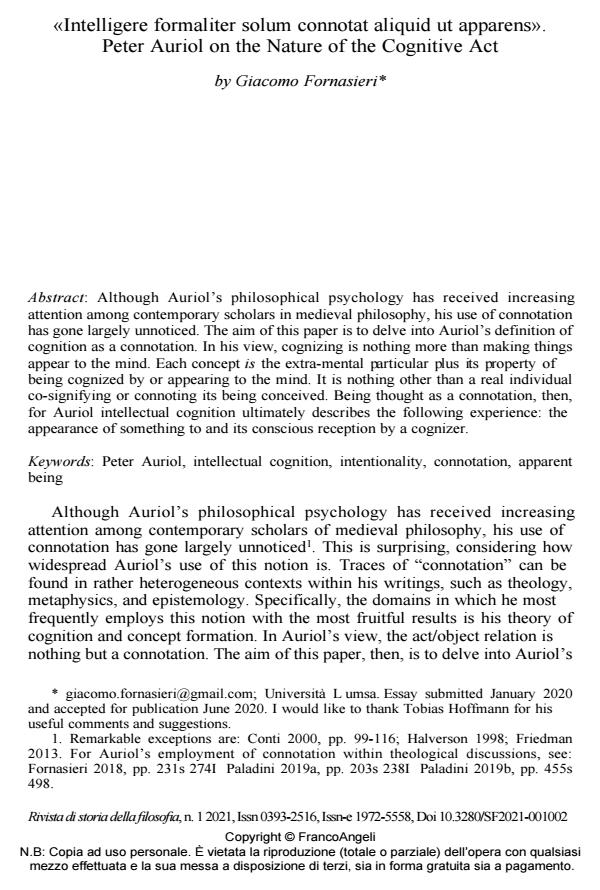«Intelligere formaliter solum connotat aliquid ut apparens». Peter Auriol on the Nature of the Cognitive Act
Journal title RIVISTA DI STORIA DELLA FILOSOFIA
Author/s Giacomo Fornasieri
Publishing Year 2021 Issue 2021/1
Language French Pages 26 P. 24-49 File size 230 KB
DOI 10.3280/SF2021-001002
DOI is like a bar code for intellectual property: to have more infomation
click here
Below, you can see the article first page
If you want to buy this article in PDF format, you can do it, following the instructions to buy download credits

FrancoAngeli is member of Publishers International Linking Association, Inc (PILA), a not-for-profit association which run the CrossRef service enabling links to and from online scholarly content.
Although Auriol’s philosophical psychology has received increasing attention among contemporary scholars in medieval philosophy, his use of connotation has gone largely unnoticed. The aim of this paper is to delve into Auriol’s definition of cognition as a connotation. In his view, cognizing is nothing more than making things appear to the mind. Each concept is the extra-mental particular plus its property of being cognized by or appearing to the mind. It is nothing other than a real individual co-signifying or connoting its being conceived. Being thought as a connotation, then, for Auriol intellectual cognition ultimately describes the following experience: the appearance of something to and its conscious reception by a cognizer
Keywords: Auriol, intellectual cognition, intentionality, connotation, apparent being
- Peter Auriol on Intellectual Memory and Cognition: From the Inner Senses to the Intellect and Back André Martin, in Topoi /2026
DOI: 10.1007/s11245-025-10308-y - Metaphysics Through Semantics: The Philosophical Recovery of the Medieval Mind Giacomo Fornasieri, pp.323 (ISBN:978-3-031-15025-8)
Giacomo Fornasieri, «Intelligere formaliter solum connotat aliquid ut apparens». Peter Auriol on the Nature of the Cognitive Act in "RIVISTA DI STORIA DELLA FILOSOFIA" 1/2021, pp 24-49, DOI: 10.3280/SF2021-001002